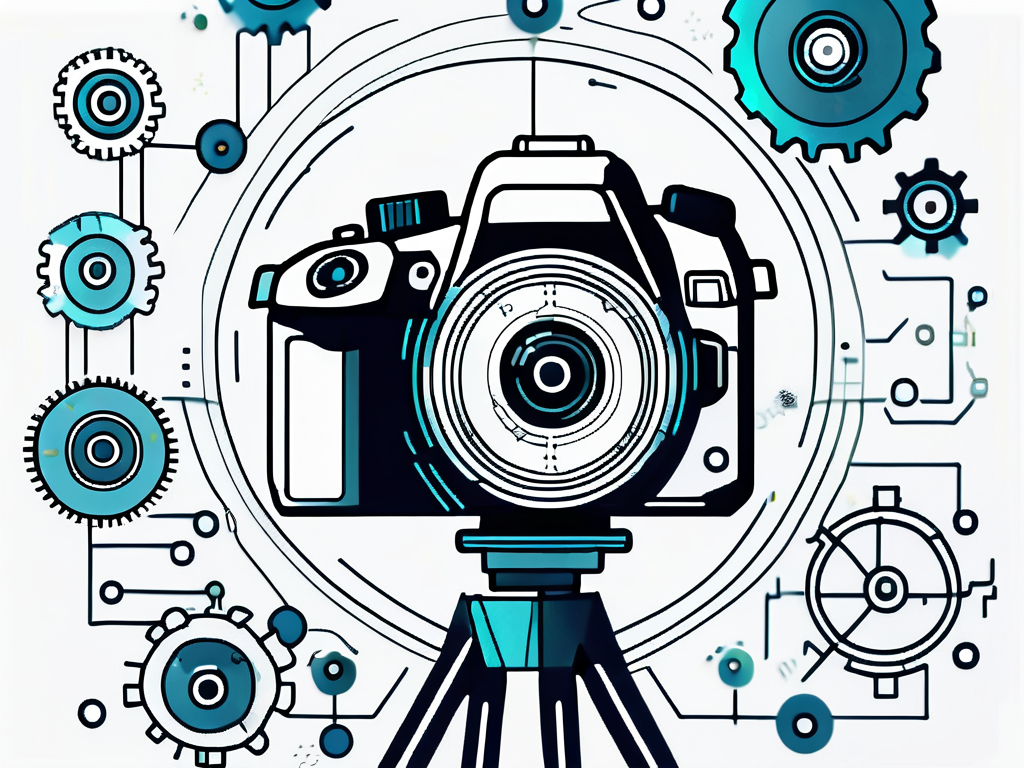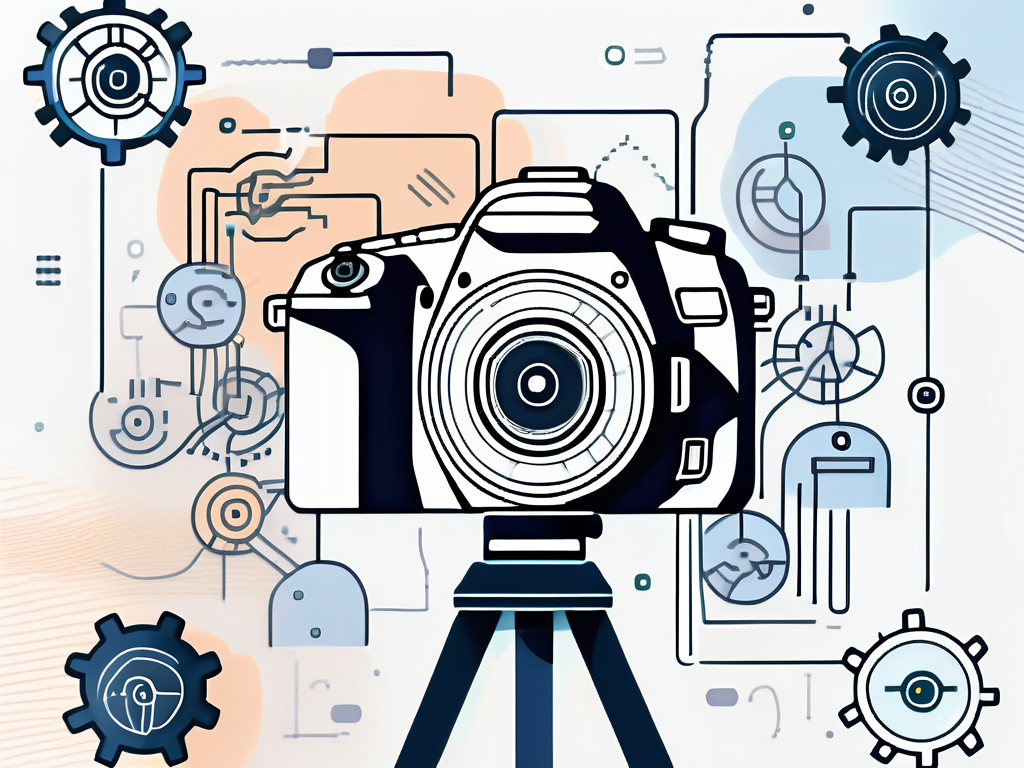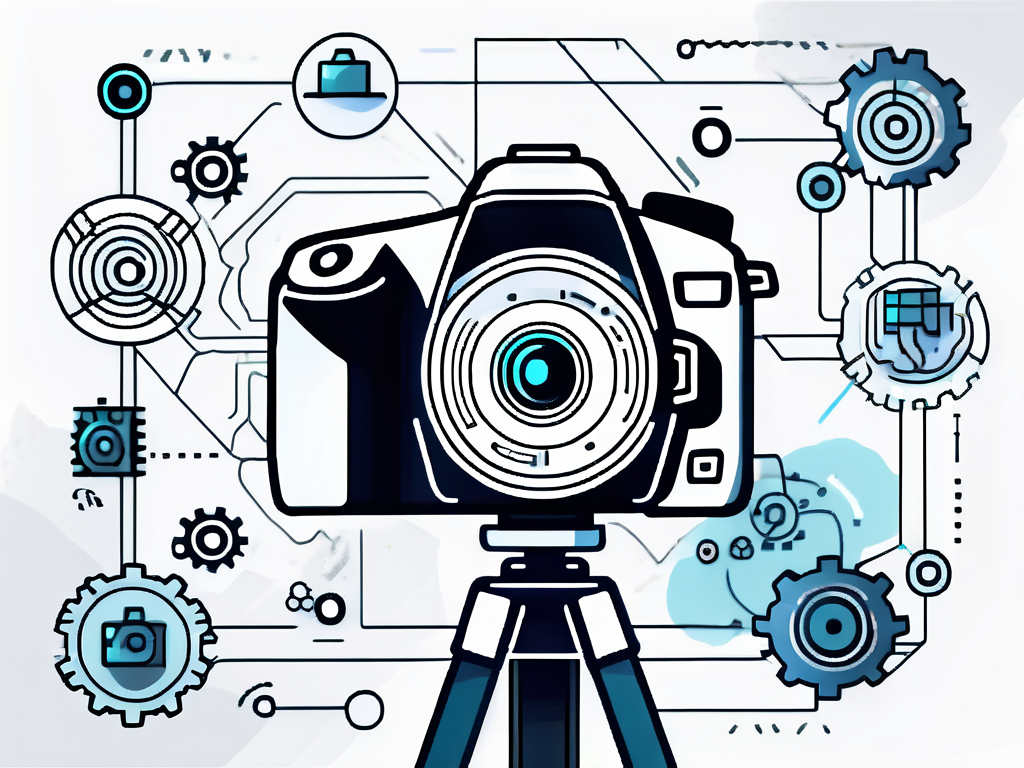In today’s digital age, product photography plays a crucial role in capturing consumer attention and influencing purchasing decisions. With advancements in technology, Artificial Intelligence (AI) has emerged as a powerful tool that can revolutionize the way product photography is conducted. In this article, we will explore the various ways AI can transform product photography and the impact it can have on businesses and consumers alike.
Understanding AI in Product Photography
Before delving into the ways AI can transform product photography, it is important to have a solid understanding of what AI entails in the context of photography. AI, in its simplest form, refers to the ability of machines to perform tasks that typically require human intelligence. In photography, AI algorithms enable computers to analyze and process images, providing automation and efficiency like never before.

AI in product photography goes beyond mere automation; it revolutionizes the way images are captured and enhanced. By harnessing the power of AI, photographers can achieve unparalleled precision and consistency in their work, ensuring that each product image meets the highest standards of quality and visual appeal.
Defining AI in the Context of Photography
In product photography, AI algorithms have the ability to recognize and identify objects, optimize lighting and composition, and even retouch images. By mimicking human cognitive processes, AI can perform complex tasks quickly and accurately, thereby enhancing the overall efficiency and quality of product photography.
Moreover, AI algorithms can adapt to different styles and preferences, learning from each editing decision made by the photographer. This adaptive learning capability not only streamlines the editing process but also empowers photographers to experiment with new techniques and styles, pushing the boundaries of creativity in product photography.
The Role of AI in Modern Photography
AI has become indispensable in modern photography by offering a range of benefits. It enables photographers to automate tedious tasks, allowing them to focus on more creative aspects of their work. Additionally, AI technology can assist in real-time feedback, helping photographers make informed decisions and adjustments during a shoot. The result is improved productivity and a higher standard of photography.
Furthermore, AI-driven tools can analyze market trends and consumer preferences, providing valuable insights that can guide photographers in creating images that resonate with their target audience. By leveraging AI in product photography, professionals can stay ahead of the curve and deliver visually compelling content that captivates viewers and drives engagement.
The Impact of AI on Product Photography
AI has the potential to transform product photography in numerous ways, improving efficiency, image quality, and the overall customer experience. Let’s explore some of the key ways AI can revolutionize the field.

Artificial Intelligence (AI) is making waves in the world of product photography, offering innovative solutions to age-old challenges. By harnessing the power of AI, businesses can now achieve unparalleled levels of image quality, consistency, and efficiency, setting new standards in visual representation.
Enhancing Image Quality with AI
One of the significant challenges in product photography is ensuring consistent image quality. AI algorithms can automatically adjust lighting, colors, and contrast to produce images that accurately represent the product. This eliminates the need for extensive post-processing and enhances the visual appeal of the product, ultimately driving customer engagement and sales.
Moreover, AI-powered tools can intelligently analyze product images to ensure they meet industry standards and brand guidelines. By automatically detecting and correcting any deviations, AI helps maintain a cohesive visual identity across all product photography, reinforcing brand image and customer trust.
AI and High Volume Photography
For businesses dealing with high volumes of products, capturing, editing, and organizing images can be a daunting task. AI technology can streamline this process by automatically categorizing and tagging images, saving valuable time and resources. Additionally, AI algorithms can detect and remove any imperfections or blemishes, ensuring that each product is presented in its best possible form.
Furthermore, AI’s ability to analyze consumer behavior and preferences can inform product photography decisions, guiding businesses in creating images that resonate with their target audience. By leveraging AI insights, companies can tailor their visual content to meet specific market demands, driving conversion rates and maximizing ROI.
AI in Post-Production of Product Photography
Post-production is an integral part of product photography, where images are edited and retouched to enhance their visual appeal. AI advancements have made significant strides in automating these processes, making them faster and more efficient.

As technology continues to evolve, AI tools are becoming increasingly sophisticated in their ability to handle complex editing tasks. One notable area where AI excels is in background removal and replacement. By leveraging machine learning algorithms, AI can accurately detect product edges and separate them from the background, allowing for seamless integration into different settings or backgrounds.
Automated Editing and Retouching
AI algorithms can identify and address common issues such as red-eye, noise, and unwanted objects, eliminating the need for manual intervention. Moreover, AI can intelligently retouch images, smoothening skin tones, removing wrinkles, and enhancing details, resulting in professional-quality product photographs.
Furthermore, AI-powered tools can also assist in batch editing, allowing photographers to apply consistent edits across a large number of images effortlessly. This not only saves time but also ensures a cohesive look and feel throughout an entire product line or collection.
AI in Color Correction and Grading
Color correction is a critical aspect of product photography, ensuring that the product is represented accurately. AI can automatically analyze images, adjust color tones, and even suggest the most appealing color grading options. This not only saves time but also ensures consistency across a brand’s product catalog.
Additionally, AI can help optimize images for different platforms and devices by automatically adjusting brightness, contrast, and saturation levels based on specific requirements. This adaptability ensures that product images appear vibrant and eye-catching regardless of where they are displayed, enhancing the overall visual impact of the brand’s online presence.
AI and the Future of Product Photography
As AI continues to advance, the future of product photography holds immense potential. Let’s explore some of the predicted trends in AI and photography, along with the challenges and solutions that may arise.
Predicted Trends in AI and Photography
With AI becoming increasingly sophisticated, future trends in product photography may include augmented reality (AR) integration, allowing customers to virtually interact with products before making a purchase. This technology would enable customers to see how a product would look in their own space, providing a more immersive and personalized shopping experience. Imagine being able to try on virtual clothes or place furniture in your living room before buying!
Additionally, AI algorithms may further enhance the accuracy of image recognition, making it easier to capture and describe products accurately. This could involve advanced object recognition capabilities, allowing AI to identify specific features and details of a product, such as color, texture, and size, with incredible precision. As a result, product descriptions could become more detailed and informative, helping customers make informed purchasing decisions.
Potential Challenges and Solutions in AI Photography
While AI presents numerous opportunities, it also comes with challenges. Privacy concerns, ethical considerations, and the potential for bias are just a few of the issues that may arise. For example, with the integration of AR, there may be concerns about the collection and use of personal data. However, as the technology evolves, guidelines, regulations, and ethical frameworks can be put in place to address these challenges, ensuring responsible and unbiased use of AI in product photography.
Another challenge is the potential for bias in AI algorithms. If the training data used to develop these algorithms is biased, it could lead to inaccurate or unfair representations of products. To overcome this, developers can focus on diversifying the training data and implementing rigorous testing and validation processes to ensure fairness and inclusivity.
In conclusion, AI has the potential to revolutionize product photography in countless ways. The ability to automate tasks, enhance image quality, and improve the overall customer experience will undoubtedly transform the industry. By embracing AI, businesses can stay at the forefront of product photography, capturing attention, and driving growth in today’s highly competitive digital landscape. The future of product photography is bright, and AI will play a pivotal role in shaping it.